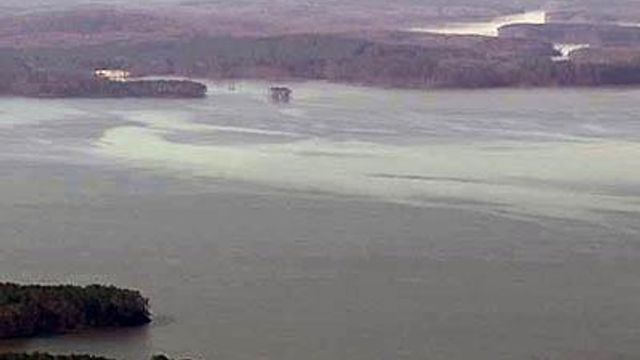Jordan Lake 'Artificially High' Because of Early Cutbacks
Different management strategies keep Jordan Lake filled, while Falls Lake struggles to rebound from drought.
Posted — UpdatedThe Corps' different management strategies for the two lakes is a primary reason that Jordan Lake has remained full throughout the ongoing drought while Falls Lake, Raleigh's primary reservoir, has struggled.
Releases from Jordan Lake were slashed by about two-thirds last fall as the drought seriously took hold across North Carolina. Terry Brown, the Corps' water control manager for eastern North Carolina, said a management plan adopted after a drought in 2002 called for the early cutbacks.
The move kept billions of gallons in the lake instead of flowing down the Cape Fear River.
Raleigh officials pushed for weeks to get the Corps to reduce flows from Falls Lake into the Neuse River. The Corps responded by cutting flows by 3 million gallons a day last month, and after some pressure from area congressmen, the Corps reduced flows by another 14 million gallons a day last week.
"We want discharges to be consistent with the water that's there," Raleigh Mayor Charles Meeker said, calling on the Corps to adjust its management strategy at Falls Lake.
The Corps has to maintain specified flows in the rivers downstream of both lakes, and Brown said that's easier to do below Jordan Lake than Falls Lake, despite the proximity of the two river basins.
"The Neuse River basin is a very tight river basin," he said, noting heavy demand for drinking water downstream. "We have more leeway with the Cape Fear basin."
The Corps plans to study Raleigh's request to change how Falls Lake is managed, he said, but changes likely won't be as dramatic as those implemented at Jordan Lake.
"I seriously doubt we can do the cutbacks (at Falls Lake) that we did over at Jordan," he said.
The recent rains that have replenished Falls Lake – the lake was less than 3 feet below normal levels Monday after hovering around 8 feet below normal in recent weeks – could allow the Corps to increase releases from Jordan Lake.
Cary spokeswoman Susan Moran said the uncertainty over the Corps' management strategy at the lake, where the town draws its drinking water, is a main reason local officials are reluctant to ease tight water restrictions despite having more than 400 days of available water.
"The way the Corps has managed it has kept the level artificially high to make sure that our citizens and the folks we're sharing with will have water," Moran said. "It's difficult for us to know exactly what's going to happen."
• Credits
Copyright 2024 by Capitol Broadcasting Company. All rights reserved. This material may not be published, broadcast, rewritten or redistributed.






